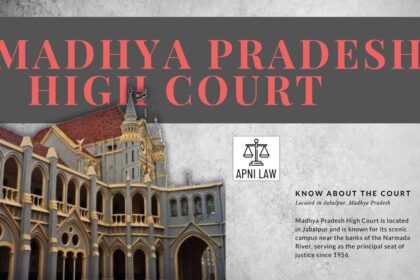Introduction
In Indian contract law, consideration is a crucial element that validates any agreement. Without it, a contract is generally void. However, Section 25 of the Indian Contract Act, 1872 outlines specific situations where an agreement made without consideration can still be legally enforceable. This section plays a vital role in recognizing promises made out of natural love and affection, for past voluntary services, or to pay a time-barred debt.
Section 25 ensures that genuine moral obligations, family relationships, and past acts of kindness do not go unrecognized in the legal system. By providing these exceptions, the law strikes a balance between strict contractual rules and the realities of human conduct. Understanding this section is essential for anyone dealing with contract formation, enforcement, or dispute resolution in India.
What Is Consideration in Contract Law?
Consideration in contract law is the foundation of a valid agreement. It refers to something of value exchanged between the parties. If the promisee or any other person, at the desire of the promisor, does or refrains from doing something, or promises to do or not do something, that act, abstinence, or promise is considered a valid consideration for the promise.
What Does Section 25 in Indian Contract Law Tell About Void Contracts?
Generally, an agreement without consideration is void. However, there are specific exceptions where the law still recognizes such agreements as valid contracts. The first exception applies when an agreement is in writing, duly registered under the relevant registration law, and made out of natural love and affection between parties in a close relationship, such as between family members. In this case, even without consideration, the agreement becomes legally enforceable.
The second exception involves a promise made to compensate someone who has already done something voluntarily for the promisor. This also includes cases where the act done was something the promisor was legally bound to do. If a promise is made later to compensate for such an act, it becomes a valid contract even if there was no consideration at the time of the act.
The third exception covers promises made in writing and signed by the promisor or their authorized agent to pay a debt that would have been legally recoverable but for the Limitation Act. Although the debt may not be enforceable due to the time limit, a written and signed promise to pay all or part of it makes the agreement valid.
In all these cases, the agreement, though lacking present consideration, is still treated as a contract under the law.
Explanations
The law also includes two important explanations. The first explains that nothing affects the validity of a gift that is actually made. So, gifts given without consideration are still valid between the donor and donee. The second explanation clarifies that a contract is not void simply because the consideration is inadequate. However, the inadequacy of consideration can be a factor for the court to assess whether the promisor gave free consent to the agreement.
To understand these principles better, consider the following examples. If A promises to give B Rs. 1,000 without any consideration, it is a void agreement. But if A promises the same amount to his son B out of natural love and affection, and the promise is written and registered, it becomes a valid contract. Similarly, if A finds B’s purse and returns it, and B later promises to pay A Rs. 50, that promise is enforceable. If A supports B’s infant son and B agrees to repay those expenses, the contract is valid. Even when a debt is time-barred by limitation law, if A signs a written promise to pay Rs. 500 to B, that becomes enforceable.
In a case where A sells a horse worth Rs. 1,000 for just Rs. 10, the agreement is still valid if A gave free consent, despite the low price. However, if A later claims he did not consent freely, the inadequacy of the consideration becomes a key factor for the court to evaluate whether the consent was genuine.
Case Law
Agreements between close relatives can be valid even without consideration, if they are in writing and properly registered, and clearly motivated by natural love and affection. In the case of Rajlukhy Dabee v. Bhootnath Mukerjee (1900), expectations of love and affection were negated by their ongoing disputes, and thus it was held void as it lacked genuine affection. Conversely, in Manali Singhal v. Ravi Singhal (1998), the Delhi High Court upheld a family settlement, deciding that ending discord and restoring harmony demonstrated true affection that satisfied the exception.
Conclusion
Section 25 of the Indian Contract Act plays a crucial role in determining the enforceability of agreements without consideration. It clearly states that an agreement made without consideration is void unless it falls under specific exceptions such as natural love and affection, compensation for voluntary services, or a written promise to pay a time-barred debt. This provision protects the sanctity of contracts by ensuring that mutual benefit or legal obligation is present in every enforceable agreement. Understanding this section helps parties form valid contracts and avoid legal disputes. Therefore, for any contract to hold legal value, consideration must be present unless it falls under the defined exceptions of Section 25.








